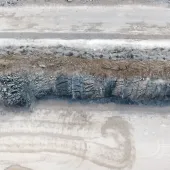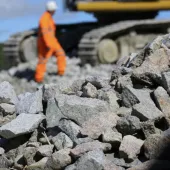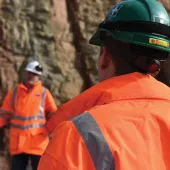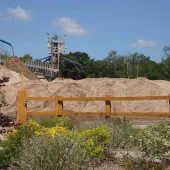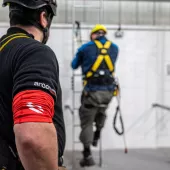New Leadership at QNJAC

First published in the December 2017 issue of Quarry Management as In Safe Hands
After 20 years of evolution and progress, the Health and Safety Executive (HSE) has passed the chairmanship and secretariat of the Quarries National Joint Advisory Committee (QNJAC) to the industry it serves.
The Institute of Quarrying (IQ) has taken on this important leadership role in its centenary year, which reflects the importance with which IQ sees the role of QNJAC for its members and the industry as a whole.
IQ chairman Phil Redmond said: ‘I am delighted to be taking on the extra responsibilities as chairman of QNJAC. I will be following in the footsteps of some highly respected people from Eric Darlow and Rob Pearce to Terry Howes and John Crabbe, which will not be easy, but you can rest assured that we will be looking to build on the great work that QNJAC has delivered over the years.
‘Our key focus will remain on reaching out to as many people as possible in our journey towards the ultimate prize of zero harm.’
QNJAC was formed in 1993 against the backdrop of more than 70 years of unacceptable safety standards in quarries.
Back in 1920 the mineral extraction sector was Britain’s most dangerous land-based industry for workers by a long way. Fifty-four people lost their lives that year and a further 3,571 were seriously injured in what would now be recognized as RIDDOR reportable incidents.
As time moved on the situation improved – but not by much. The death toll in 1982 stood at 18, despite one of the worst recessions in living memory, which had severely reduced production output.
In May 1993 the HSE published a report called ‘10 Years of Death’, to highlight the unacceptable level of fatalities and injuries in quarries. Things needed to change – and they did.
That same month saw the inaugural meeting of QNJAC, chaired by the HSE and held at its offices in London. It set out a clear plan of work and, for the first time, provided a tripartite forum for quarry managers to discuss health and safety issues alongside the HSE and the trade unions.
Within the first decade the industry had reduced accident rates by a staggering 33%, clearly demonstrating that a collaborative approach was not only working, but working well.
To build on this success, QNJAC introduced what was known as the ‘Hard Target’ initiative. It entailed all the major quarrying companies, as well as many of the SMEs, pledging publicly to achieve a 50% reduction in accidents over five years from 2000 to 2005.
Some sceptics believed this could not be achieved, but under the guidance of QNJAC and within the time frame, the industry actually achieved a 52% reduction. This was celebrated at an event in November 2005 where the next stage of the initiative was launched and aptly named ‘Target Zero’, with the aim of achieving a further 50% reduction in the following five years to 2010.
This proved even more successful than the first, with the target reached a year early, contributing to an unprecedented accident-reduction figure of 86% in the 10 years from 2000 and paving the way towards the ultimate target of zero harm.
To support the accident-reduction programme, QNJAC has produced more than 70 pieces of sector-specific guidance, contributed to a number of reviews of both legislation and codes of practice, and set up seven specific interest groups focusing on key areas. One of the most recent advancements is a website and mobile app, specifically developed with the modern-day quarry worker in mind.
‘Whilst QNJAC has made a real difference to our industry and we look forward to building on that great work, recent years have seen a negative trend in the industry’s safety statistics and the role of QNJAC is now more important than ever if we are to arrest this trend,’ said Phil Redmond.‘
For further information, visit: www.qnjac.co.uk
- Subscribe to Quarry Management, the monthly journal for the mineral products industry, to read articles before they appear on Agg-Net.com

